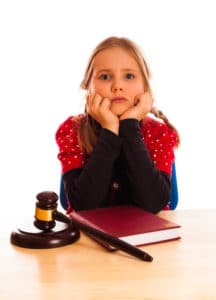When a person turns 18 years old, they are legally considered an adult. This designation comes with many privileges, such as being able to get married, be able to vote, and being able to enter into contracts on their own, but there are responsibilities too. As a parent, it is your job to care for your child until the age of 18. If your child has been accused of a crime, or charged with one, then you need a juvenile defense attorney sooner rather than later. Read on to learn more about juvenile court cases and then contact Chambers Law Firm at 714-760-4088 for more information.
The first step in the California juvenile court process is an arrest
As is true in adult court, the first step will be for the police to arrest your child. If it’s an incident that’s not quite so serious, then they may simply issue a warning and let the child go. On the other hand, if it’s a serious issue then they’re going to take your child to juvenile hall. It’s your job to protect and defend your child so that they have the best possible chance at a bright future.
The goal of juvenile court is different than the goal of adult court
The juvenile court system’s purpose is not to punish your child. Instead, it’s to rehabilitate them and protect them. For example, if a child is accused of trespassing and has no prior record, it’s more likely that they’d be given a warning, their parents would be called, and the situation would be dropped. On the other hand, an adult in that situation could very well end up in jail and with much more significant consequences.
A probation officer is different in juvenile court
When you think of a probation officer, you likely think of someone who handles cases in which a person has already been convicted. This is not the case in juvenile court. Instead, a probation officer is a person who interviews a child after they’ve been accused of a crime. They will do one of several things.
They may send your child home with a citation that requires them to return to court at a specific time and date, they may send your child home with a probation program that doesn’t require your child to go back to court, or, the worst-case scenario, they may keep your child in juvenile hall until a judge can consider the case.
In the event the judge does find your child guilty, then they will come up with a sentence based on how serious the crime is, whether your child has a previous criminal history, and other factors. There is no jury in a juvenile case. It’s all up to the judge and it’s up to you to ensure that the judge hears all evidence in your child’s defense. Call Chambers Law Firm at 714-760-4088 right now to schedule a free consultation so you can find out what your child’s options are.





